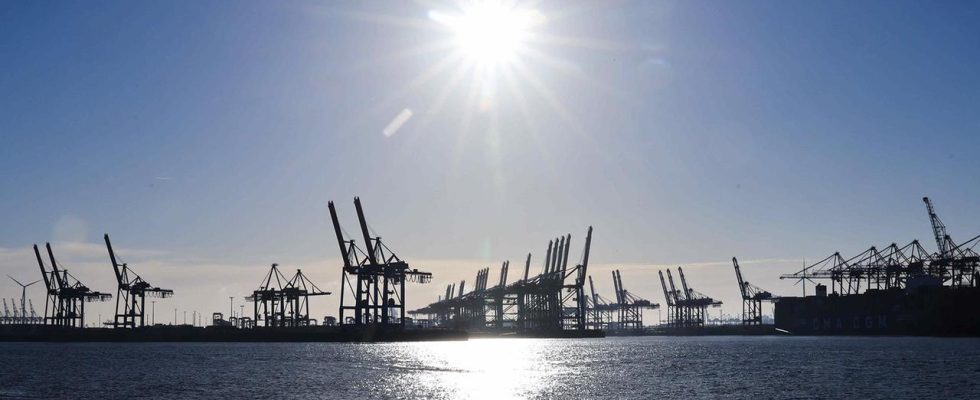German gross domestic product increased by 0.2 percent in the first quarter. This meant the economy narrowly avoided recession. Economists are seeing the first signs of a trend reversal.
The German economy avoided recession in the first quarter. The gross domestic product grew by 0.2 percent from January to March compared to the previous quarter, as the Federal Statistical Office announced based on an initial estimate. Economists surveyed by the Reuters news agency had only expected mini-growth of 0.1 percent.
In the fourth quarter of 2023, Europe’s largest economy shrank by a revised 0.5 percent – previously the decline had been estimated at 0.3 percent. Economists speak of a technical recession if there are two negative quarters in a row.
However, in 2023 as a whole, the German economy slipped into a slight recession with a decline in gross domestic product. According to the latest calculations, the price-adjusted decline was minus 0.2 percent.
According to statisticians, the slight growth in the first quarter was driven by rising construction investments and exports. “Private consumer spending, on the other hand, fell,” it said.
Signs of an economic trend reversal
Recently, economists had identified signs of a change for the better. The Ifo business climate index rose for the third month in a row in April, which is considered an important early indicator of an upswing.
There has also been surprisingly positive news recently with regard to consumption. In March, real retail sales rose by 1.8 percent compared to the previous month, the highest in almost two and a half years. “Hope is growing that the approaching spring will further spur consumption,” said Hauck Aufhäuser Lamp’s chief economist Alexander Krüger.
However, the Bundesbank does not yet see the economy facing a sustained upswing. “The economy in Germany has brightened somewhat, but a thorough recovery is not yet assured,” says the current monthly report. The increased financing costs and increased economic policy uncertainty dampened investment activity. The demand for goods “Made in Germany” from home and abroad is still weak. The negative trend in demand in residential construction has not yet broken.
“Powerful” relief?
The federal government is currently discussing possible relief for companies. It recently raised its growth forecast for the full year slightly from 0.2 to 0.3 percent. Federal Minister of Economics Robert Habeck spoke out in favor of a “short-term” and “massive” tax relief program for the economy. In order to finance this, the Green politician called for a reform of the debt brake on Monday. The FDP, on the other hand, is calling for, among other things, the complete abolition of the solidarity surcharge and cuts in social benefits.

